The event was attended by Comrade To Lam, General Secretary of the Party Central Committee, Comrade Pham Minh Chinh, Prime Minister, leaders and former leaders of the Party, State, National Assembly , Government, Vietnam Fatherland Front, and more than 1,200 delegates representing central and local departments, ministries, branches, international organizations, enterprises, associations, and generations of cadres, civil servants, public employees, and workers of the industry.
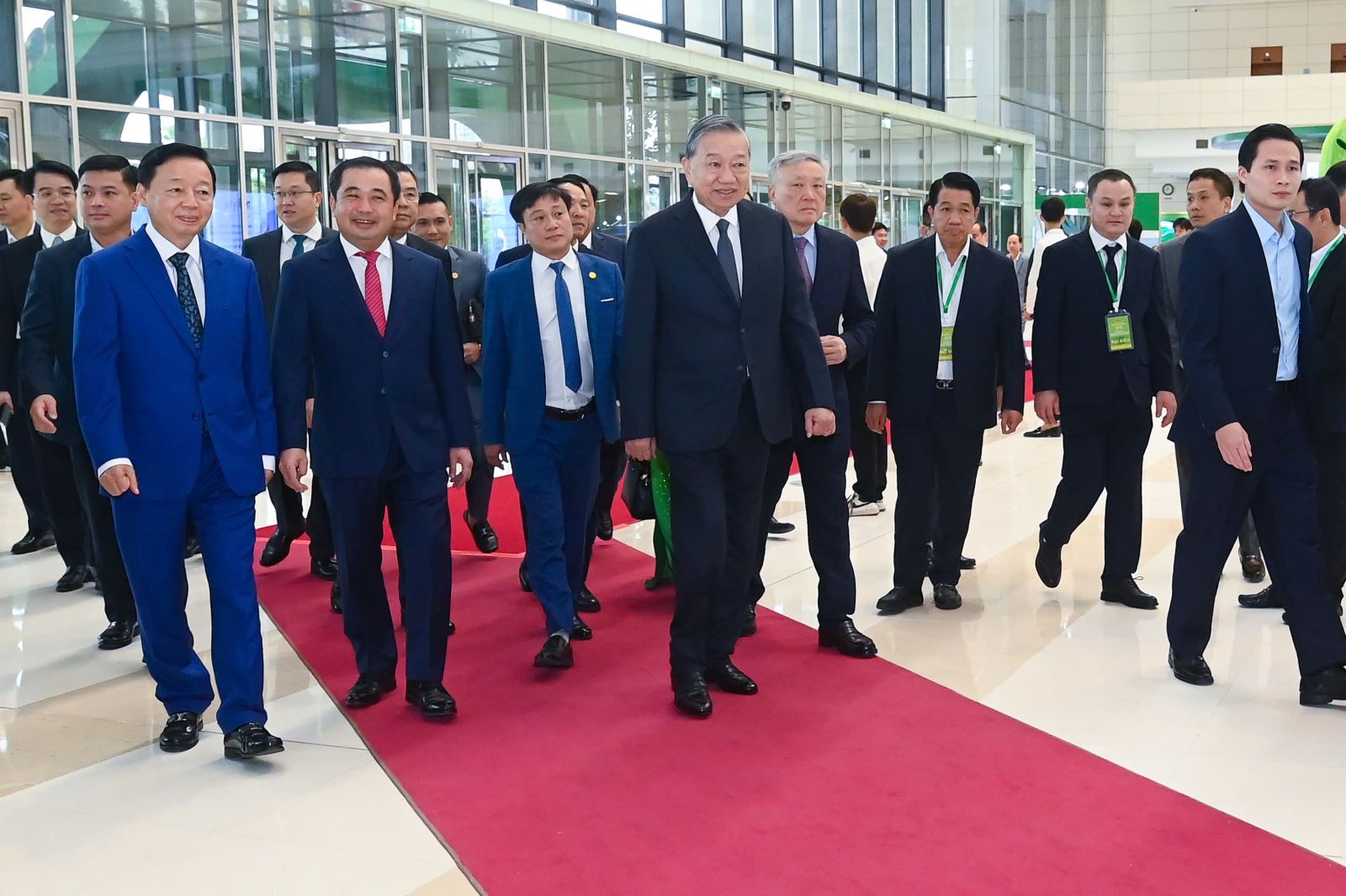
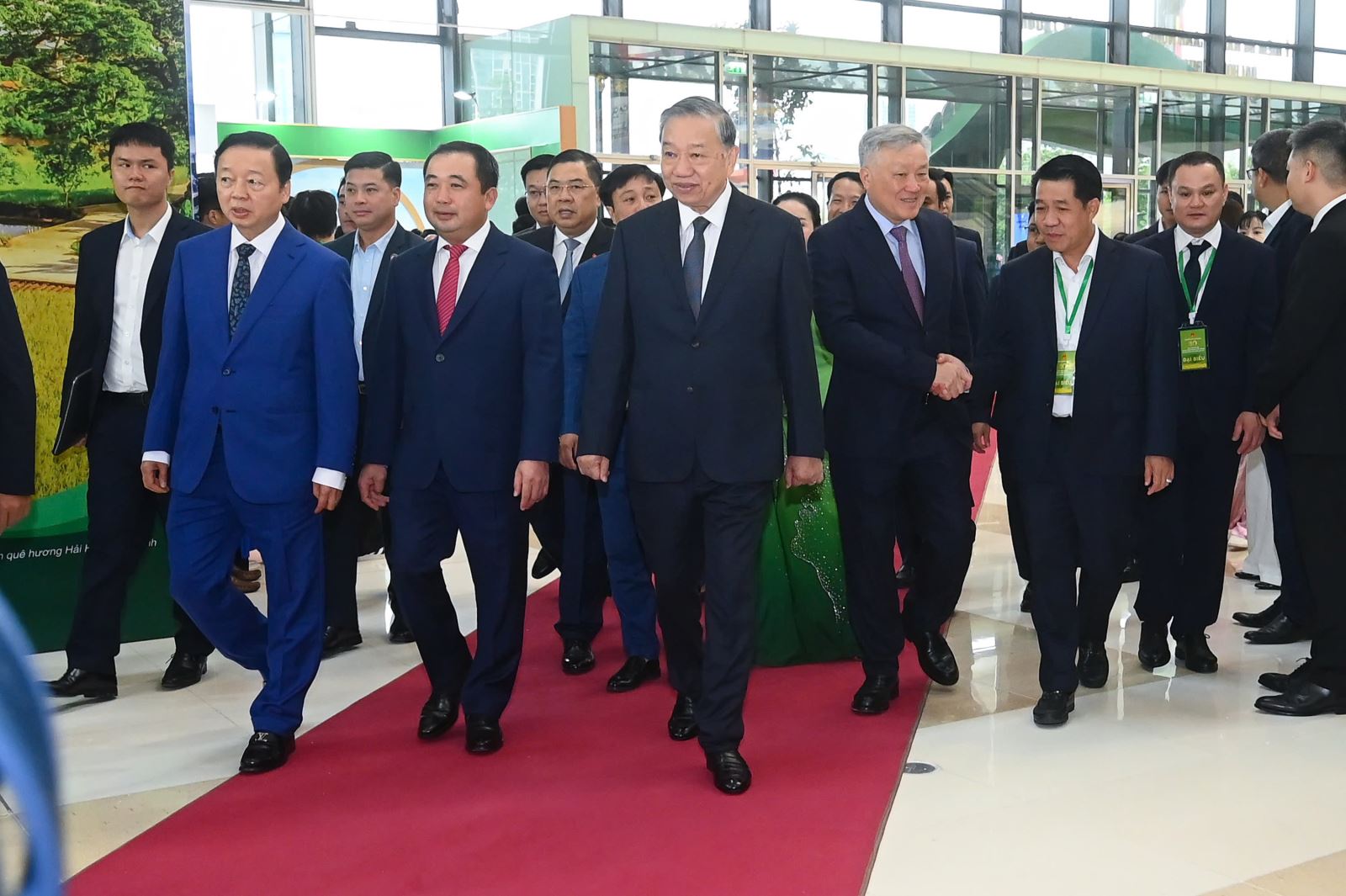
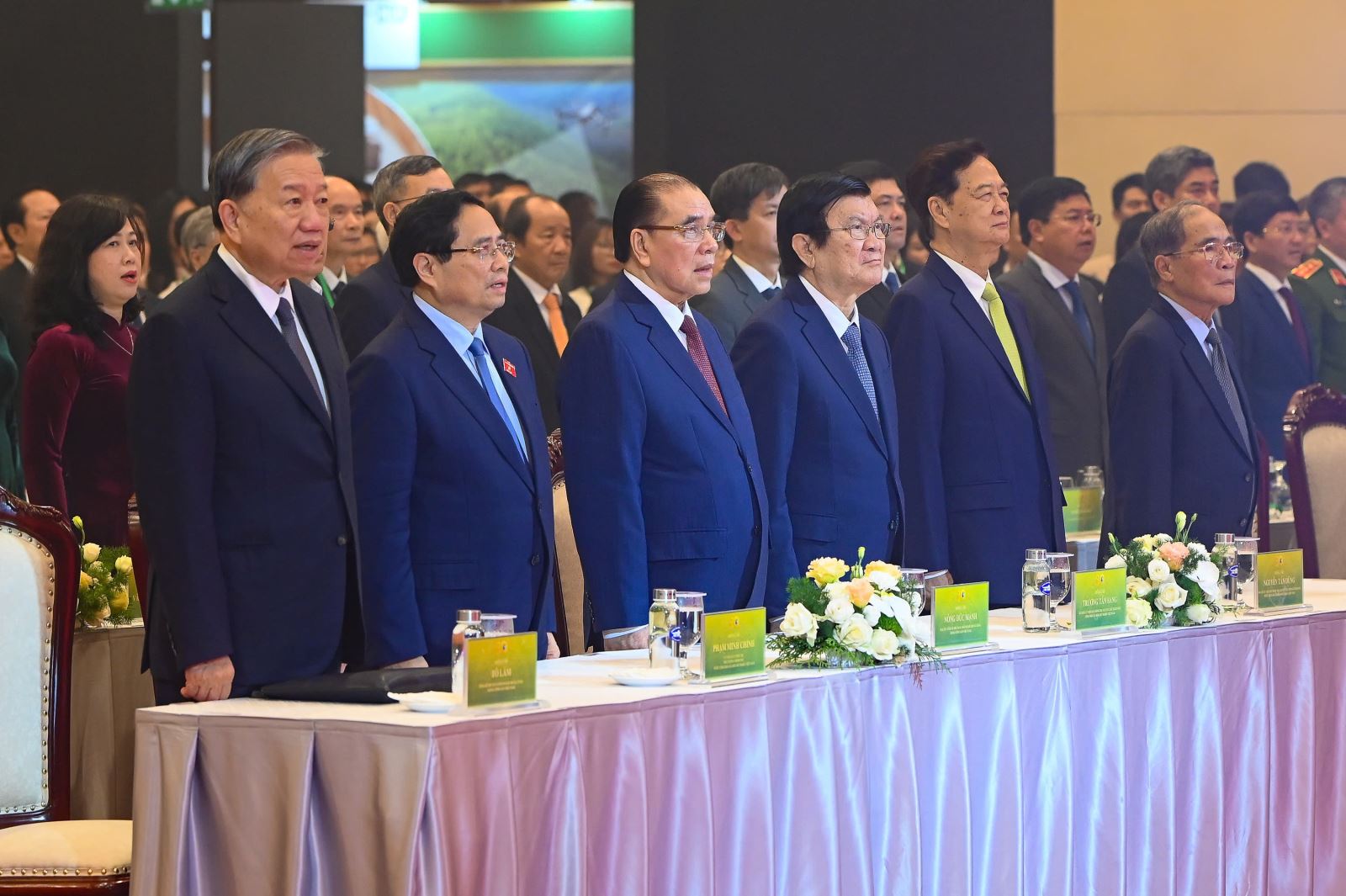
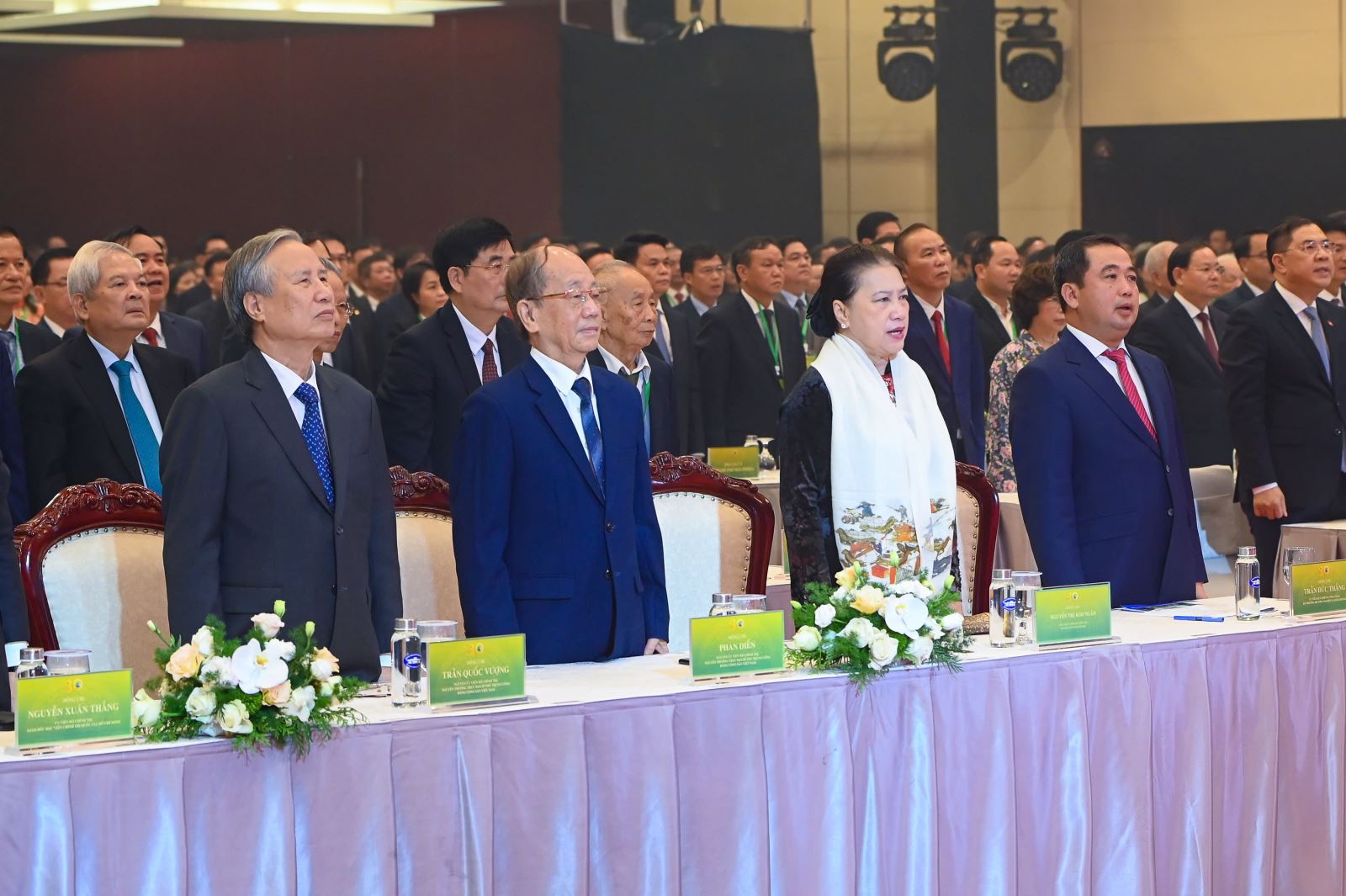
This is an important socio-political event, marking the 80-year journey of formation, development and dedication of the Agriculture, Natural Resources and Environment sectors, three important pillars in the country's sustainable development.
80 years of writing glorious history
Speaking at the ceremony, Minister of Agriculture and Environment Tran Duc Thang emphasized that the past eighty years have been a difficult but extremely glorious historical journey; an epic of the willpower, intelligence and creative working spirit of generations, which have contributed to building a green, strong and developed Vietnam.
“This important event is an opportunity for us to express our deep gratitude to generations of cadres, civil servants, public employees and workers who have devoted themselves to the Agriculture and Environment sector; at the same time, summarize valuable lessons and experiences; honor typical and advanced collectives and individuals at the first Patriotic Emulation Congress of the sector. This is also an opportunity to arouse pride, foster the flame of enthusiasm and aspiration to contribute to creating solidarity, self-reliance, and the whole sector firmly stepping into the new era of the country with a new mindset, new determination and greater aspirations”, said Minister Tran Duc Thang.
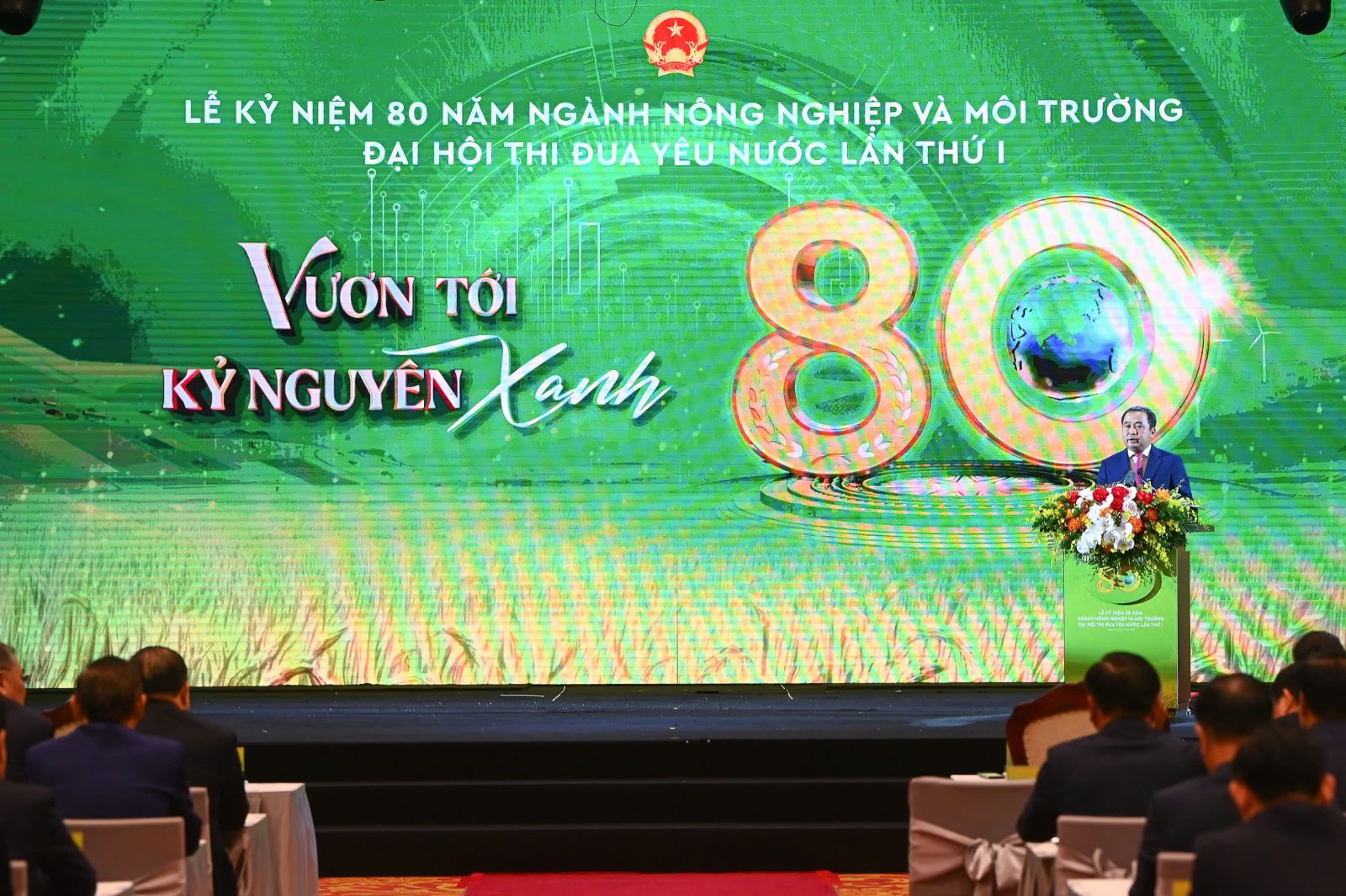
The Minister of Agriculture and Environment expressed his sincere gratitude to General Secretary To Lam, leaders and former leaders of the Party, State, National Assembly, Government, leaders of the Ministry through the periods, distinguished delegates, distinguished guests and advanced models of the sector. The presence of General Secretary To Lam and other comrades is a recognition and a source of great encouragement and motivation for the entire Agriculture and Environment sector.
Minister Tran Duc Thang said that from the early days of the country's founding, amidst countless difficulties, beloved President Ho Chi Minh advised: "If our farmers are rich, our country will be rich, if our agriculture is prosperous, our country will be prosperous". He also emphasized: "Nature has given us land, water, forests, seas, and climate for us to live. We must know how to preserve, respect, and develop...". Those sacred teachings have become the guiding principles for all policies of the Party and State over the past 80 years to build "prosperous agriculture, wealthy farmers, civilized countryside, and sustainable environment".
Looking back 80 years ago, during the two resistance wars (1945-1975), despite the fierce "rain of bombs and bullets" and harsh natural disasters, agriculture still maintained both production and combat, excellently completing the task of "one hand plowing, one hand shooting", supporting human and material resources to the front line. Millions of hectares of land were reclaimed, tens of thousands of irrigation works were built by the people, creating the miracle of "not a pound of rice missing, not a soldier missing".
After the reunification (1975), in extremely difficult economic conditions, with infrastructure destroyed, the Party and State identified agricultural development as the central task, stabilizing people's lives as the top priority. The agricultural sector quickly restored production, consolidated technical facilities, developed cooperatives, state-owned farms and forestry farms, and implemented land reclamation, irrigation, field improvement, and afforestation programs. By the end of the 1970s, basic food production capacity was restored.
However, the centralized subsidy management mechanism revealed many limitations, low productivity, and prolonged food shortages. From that reality, the Party issued innovative policies in agriculture, such as Contract 100 (in 1981) and Contract 10 (in 1988), initiating a fundamental shift in the management mechanism, awakening the potential of farmers. Vietnamese agriculture gradually escaped the period of poverty, moving towards self-reliance and ensuring national food security.
Entering the Doi Moi period in 1986, Vietnam's agriculture has made great strides in development. Breakthrough policies, such as the Land Law (1993), along with programs to transform the structure of crops and livestock, apply science and technology, build new rural areas... have opened a period of comprehensive development. From a place of food shortages and having to import food in the 1980s, Vietnam has ensured food security and become one of the world's leading agricultural exporters. Items such as rice, coffee, cashew nuts, pepper, seafood, vegetables... are continuously among the top 5 largest exporters globally, bringing in tens of billions of USD each year.
Agriculture has become a pillar of the economy, contributing to macroeconomic stability, ensuring social security and sustainable poverty reduction. During difficult times, such as the Asian Financial Crisis (1997-1998), the global economic recession (2008-2009) or the COVID-19 pandemic, agriculture has still developed, helping the economy maintain growth and social stability.
Over the past three decades, the export value of agricultural, forestry and fishery products has increased nearly 50 times, reaching more than 62.5 billion USD in 2024, putting Vietnam in the top 15 largest agricultural exporting countries in the world. In particular, the National Target Program on New Rural Development (since 2010) has fundamentally changed the face of rural areas, with more than 78% of communes meeting standards, infrastructure improved, and people's lives improved. The multidimensional poverty rate has decreased from 58% (in 1993) to 4.06% (in 2024). This is a clear demonstration of the effectiveness of agricultural, farmer and rural development policies.
With the mission of being the foundation for national construction and development, the Natural Resources and Environment sector was formed and developed very early. Immediately after gaining independence, the Democratic Republic of Vietnam identified natural resource management and environmental protection as an important task, closely linked to the welfare and life of the people. On that basis, the state management apparatus on land, mineral geology, environment, hydrometeorology, climate change, seas and islands, remote sensing, etc. has been constantly improved and expanded in functions and tasks, meeting the development requirements of each historical period of the country.
At the same time, the construction and improvement of institutions and legal policies have been continuously strengthened. From the 90s to the present, many important laws such as the Law on Environmental Protection (1993), the Land Law, the Water Resources Law, the Mineral Law, the Forestry Law, the Biodiversity Law, etc. have created an increasingly synchronous legal foundation for resource management and environmental protection, in line with the requirements of innovation and international integration.
National strategies on green growth, environmental protection and climate change response have also been strongly implemented; many major programs such as: Planting 5 million hectares of new forests, One billion trees... have achieved remarkable results. Environmental protection has become a pillar of sustainable development, not trading the environment for economic growth. Thanks to that, social awareness has been raised, forest coverage has been maintained at over 42%, many ecosystems have been restored, and environmental quality has been improved. In 2024, Vietnam will rank 54/166 countries in sustainable development, up 34 places compared to 2016, second in ASEAN; the rate of collection and treatment of household waste will reach 97.28% in urban areas and 83.1% in rural areas... thereby contributing to ensuring ecological balance and national resource security.
“It can be affirmed that over the past 80 years, the Agriculture and Environment sector has written a glorious page of history along with the history of building and defending the country. In hardship, the mettle, self-reliance, creativity and aspiration of those working in the fields of agriculture, natural resources and environment have been tempered and nurtured, becoming a solid foundation for the country's construction and development today,” Minister Tran Duc Thang affirmed.
Affirming strategic role
In response to new requirements for national development, the 15th National Assembly has resolved to merge the Ministry of Natural Resources and Environment with the Ministry of Agriculture and Rural Development into the Ministry of Agriculture and Environment from March 1, 2025. This is an important historical milestone, demonstrating the strategic vision and political determination of the Party and State in managing, exploiting and promoting national resources more effectively, meeting development requirements in the new period and era.
Immediately after the merger, the Ministry quickly reorganized and stabilized the apparatus, ensuring a streamlined, smooth, effective and efficient operation, meeting the assigned political tasks. Along with the process of reorganization and stabilization of the organization, emulation and reward work also received close attention and direction. The patriotic emulation movements in the 2020-2025 period continued to spread strongly, creating a vibrant atmosphere, encouraging cadres, civil servants, public employees and workers to overcome difficulties, making important contributions to the excellent completion of the tasks of the Ministry and the industry.
Many typical movements have achieved clear results, such as: "The whole country joins hands to build new rural areas"; "The whole country joins hands for the poor, leaving no one behind"; "The whole country joins hands to eliminate temporary and dilapidated houses"; "Cadres, civil servants and public employees compete to implement office culture"; or the movement of Innovation and digital transformation, Digital literacy; the campaign: Getting rich, cleaning up the national database on land... have become important driving forces, creating positive changes in the awareness and actions of the whole industry; making practical contributions to the common achievements of the country.
Entering a new stage of development, an era of national growth, our country is facing profound changes of the times: the Fourth Industrial Revolution, the trend of green transformation, development of knowledge economy, circular economy, low-carbon economy; along with that is the urgent need to ensure food security, energy security, water security and protection of the global ecological environment. Geopolitical, economic, trade, climate and technological fluctuations... have opened up new development opportunities, but also posed enormous demands and challenges for the Agriculture and Environment sector of our country.
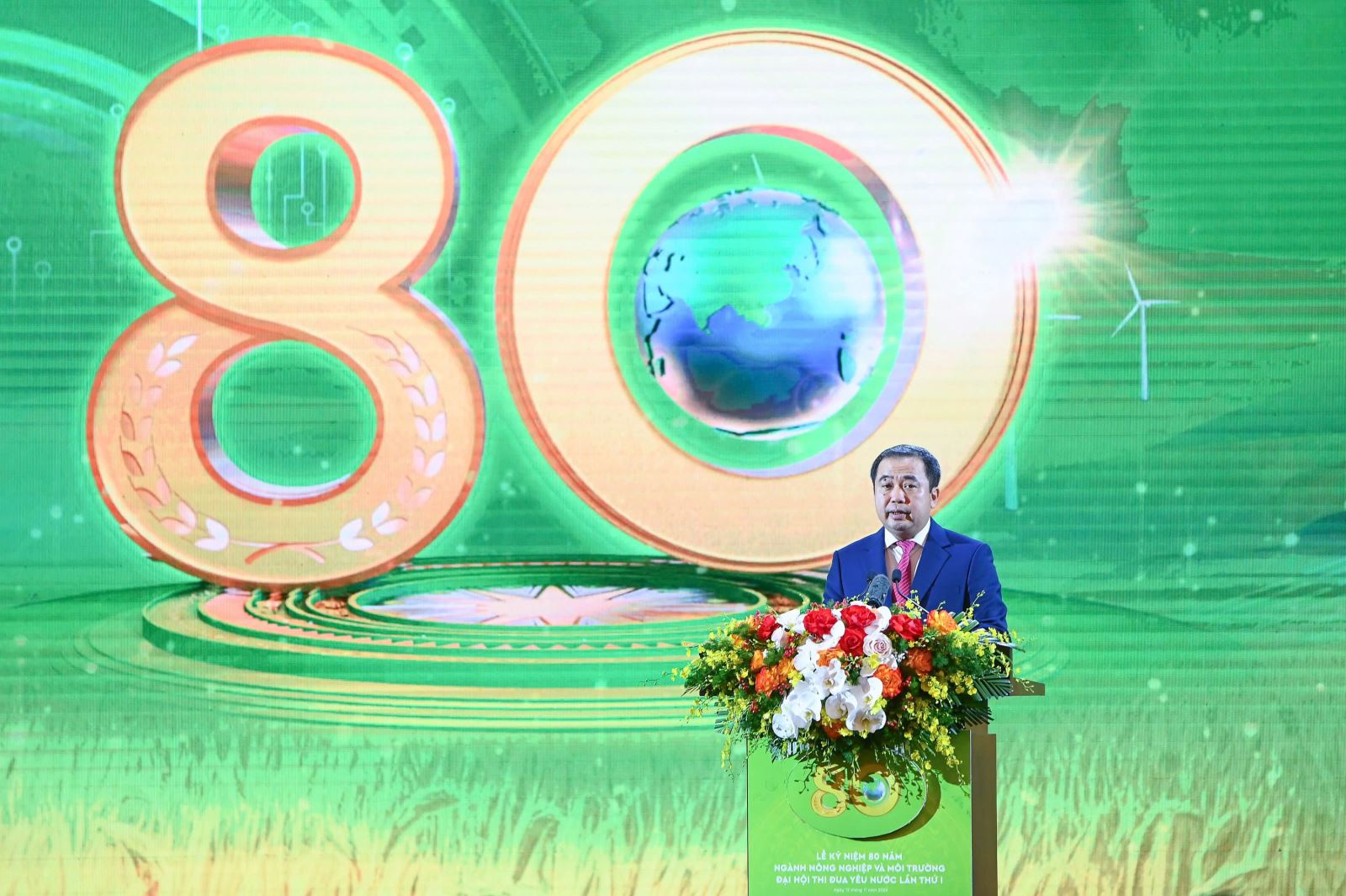
In that context, the industry's overarching goal is to develop ecological agriculture, modern countryside, civilized farmers; protect, exploit and sustainably use natural resources; proactively adapt to climate change, ensure environmental security, and contribute to building a country that develops rapidly, sustainably, prosperously and happily.
To achieve that goal, the entire sector has been thoroughly grasping and effectively implementing Resolution No. 19-NQ/TW dated June 16, 2022 of the 13th Central Executive Committee on agriculture, farmers and rural areas. This is a strategic orientation, an inevitable path to promote endogenous strength, exploit potentials and advantages, and ensure comprehensive and sustainable development of our country's agriculture. Along with that, it is necessary to strictly implement Directive No. 29-CT/TW dated January 3, 2023 of the Secretariat on strengthening the Party's leadership in environmental protection in the new period; considering this a regular task and a political responsibility of the entire system, of each cadre, party member and each citizen.
Minister Tran Duc Thang affirmed that, on that basis, in the coming time, the Agriculture and Environment sector will focus on implementing a number of key tasks and solutions. Accordingly, the Ministry will perfect its institutions and modern, unified governance model. Review and comprehensively amend laws on land, water, forests, environment, climate and agriculture to ensure consistency and transparency. Perfect the model of a streamlined, multi-sectoral Ministry capable of strategic planning and comprehensive management by region, basin and ecosystem. Strong decentralization associated with accountability, enhancing the coordination role of the Central Government and the effectiveness of local management.
Along with that, develop ecological agriculture, green and circular economy. Shift strongly from extensive growth to sustainable values based on science, technology and innovation. Replicating low emission models, biodiversity conservation, sustainable forest management. Establishing green standards, enhancing the brand of Vietnamese agricultural products associated with traceability, geographical indications and carbon credits.
The Minister emphasized the need to manage and use national resources effectively and sustainably. Economically exploit land, water, forests, minerals, and seas for long-term development. Ensure water security, especially in transboundary basins such as the Mekong. Digitize and publicize data on natural resources and the environment, and improve governance based on results and evidence.
In particular, promote science and technology and digital transformation as a driving force for breakthroughs. Apply artificial intelligence, big data, sensors, and blockchain in resource monitoring and smart agriculture. Promote research on climate-adaptive plant and animal varieties; support start-ups and innovation ecosystems in rural areas.
In addition, improve governance effectiveness and mobilize resources for green transformation. The apparatus must be streamlined, staff must have solid expertise and strong character, meeting the requirements of multi-sectoral management. Unlock domestic and international resources, especially climate finance, new generation ODA, private capital for green investment. Proactively participate in global initiatives on net zero emissions, low-carbon economy; affirm Vietnam's role and position in the region and the world.
The Minister affirmed that the achievements of the Agriculture and Environment sector over the past 80 years are the result of the efforts, intelligence and sacrifices of previous generations of cadres, civil servants, public employees and workers. We will always remember and appreciate those great contributions.
“Entering a new era of national development, the Agriculture and Environment sector, with high determination and great aspirations, believes that it will continue to make new achievements and make important contributions to the cause of building a strong and prosperous Vietnam,” the Minister affirmed.
On this occasion, the head of the Agriculture and Environment sector also requested all cadres, civil servants, public employees and workers in the sector to continue promoting the glorious 80-year tradition; renew thinking, promote research and application of science and technology, promote digital transformation and green transformation; improve productivity, quality and added value of agricultural products; proactively adapt to climate change, protect resources and ecological environment.
Each individual in the industry needs to uphold the spirit of responsibility, solidarity, creativity, and competition to excellently complete assigned tasks; contributing to realizing the goal of building ecological agriculture, modern countryside, civilized farmers, sustainable environment, and making our country develop rapidly, sustainably, and powerfully.
Source: https://baotintuc.vn/thoi-su/nganh-nong-nghiep-va-moi-truong-khang-dinh-vai-tro-chien-luoc-phat-trien-ben-vung-dat-nuoc-20251112100715571.htm












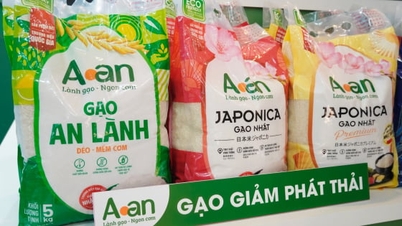

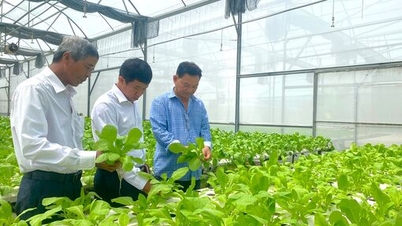

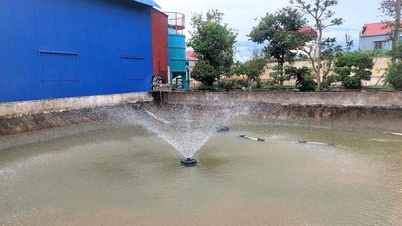

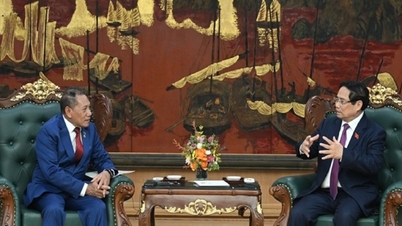

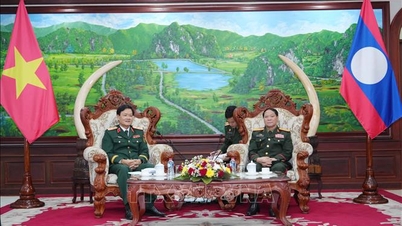
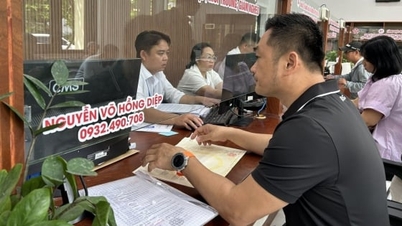
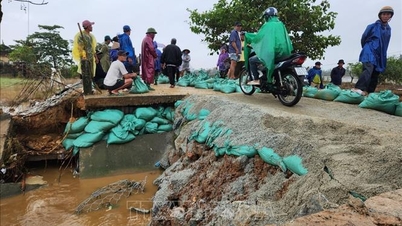
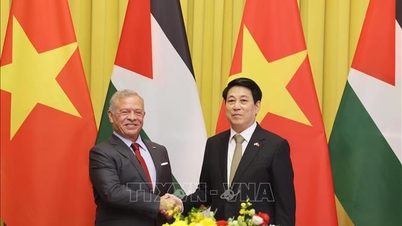
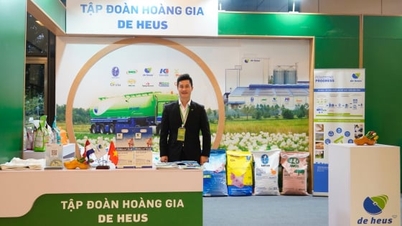
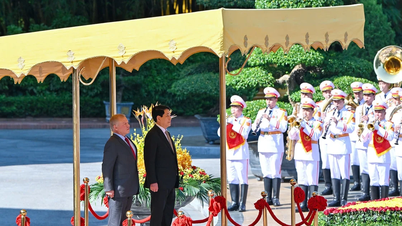





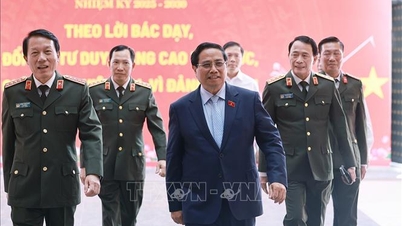
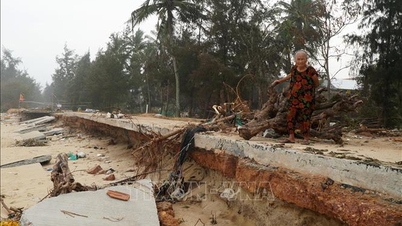
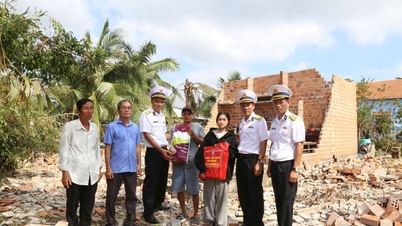
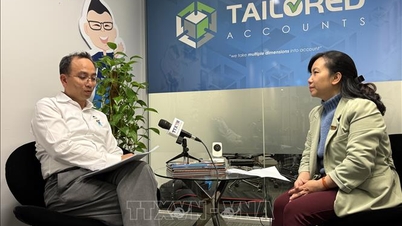
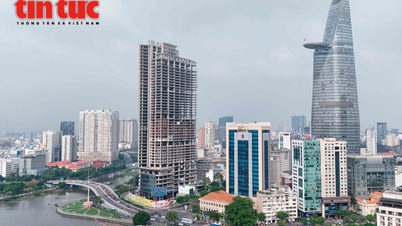
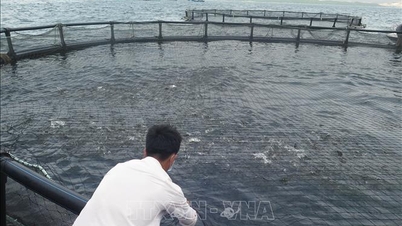
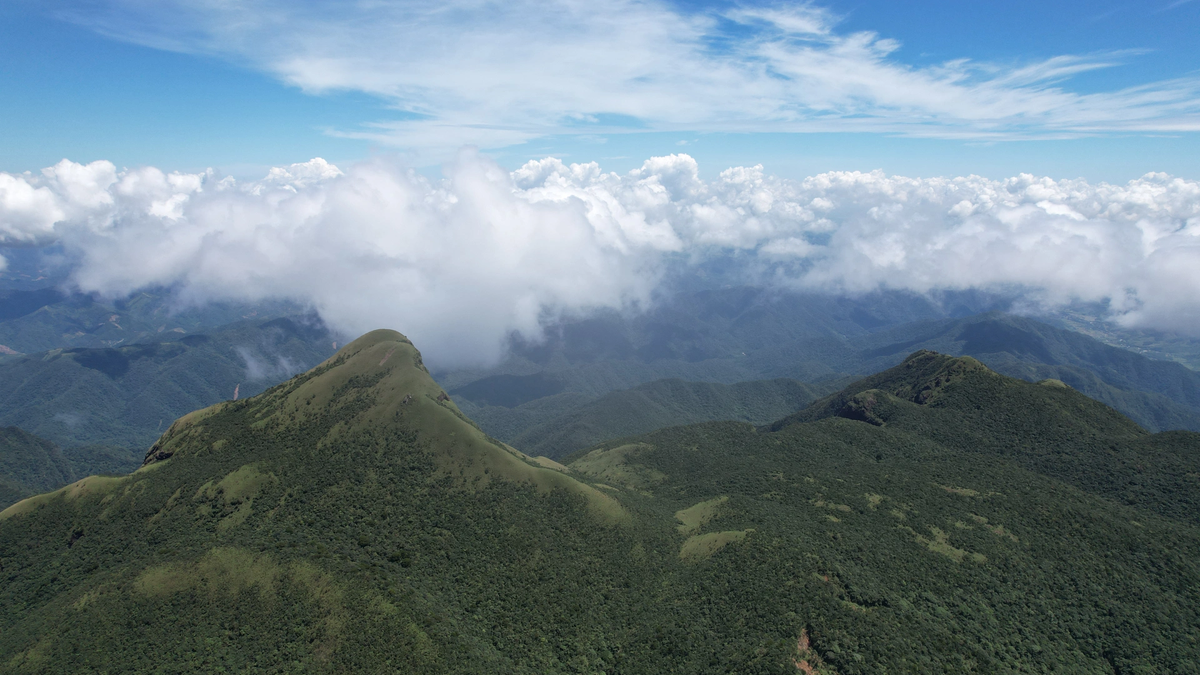



























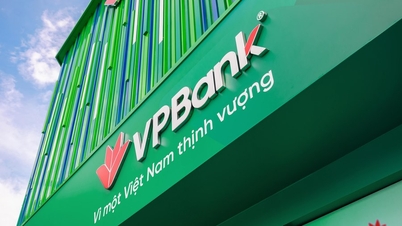

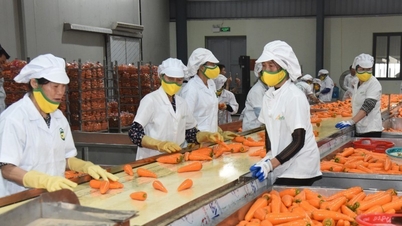











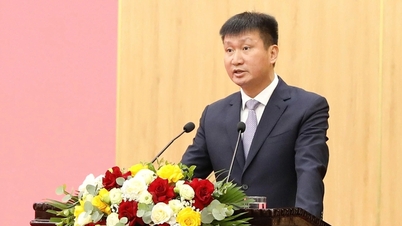




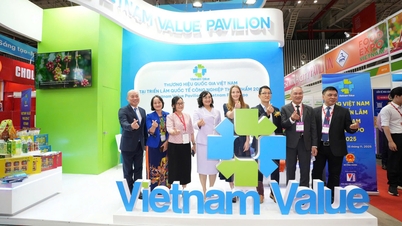


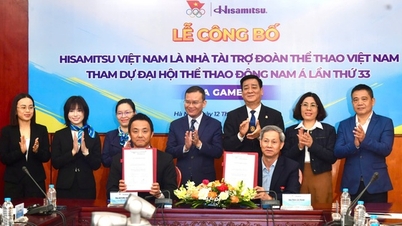
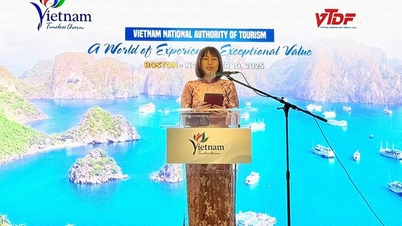



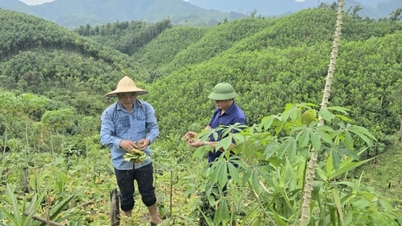
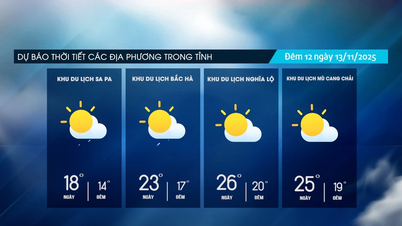

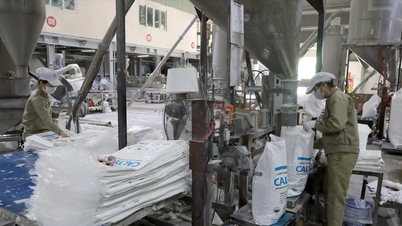




![Dong Nai OCOP transition: [Article 3] Linking tourism with OCOP product consumption](https://vphoto.vietnam.vn/thumb/402x226/vietnam/resource/IMAGE/2025/11/10/1762739199309_1324-2740-7_n-162543_981.jpeg)



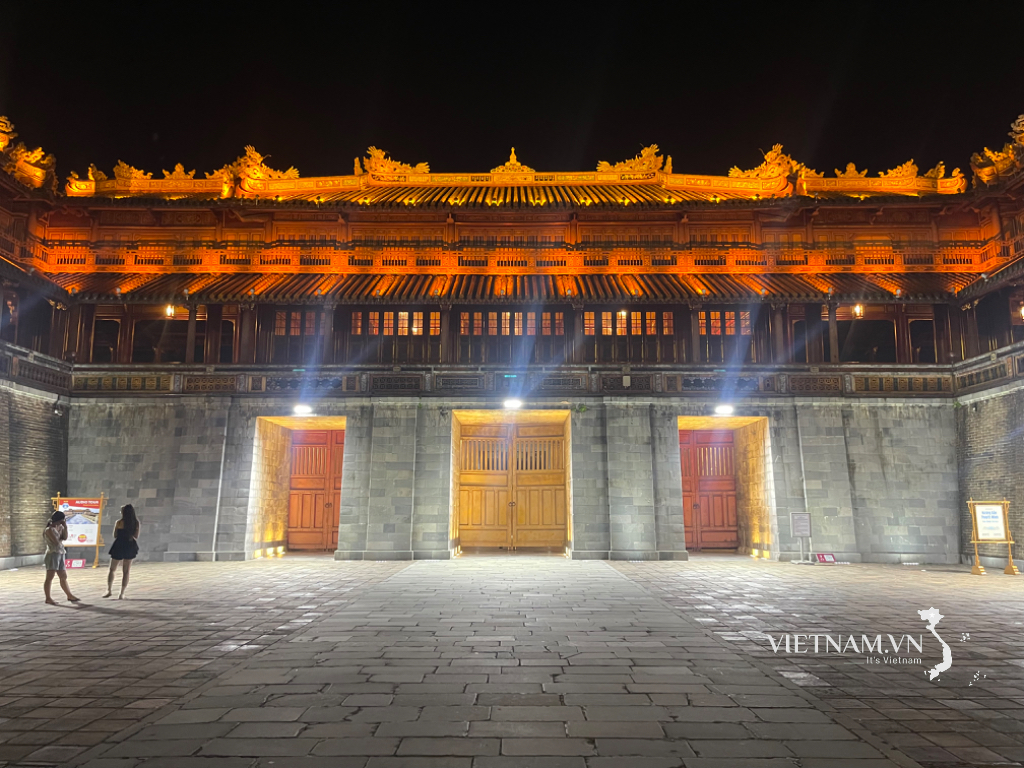



Comment (0)